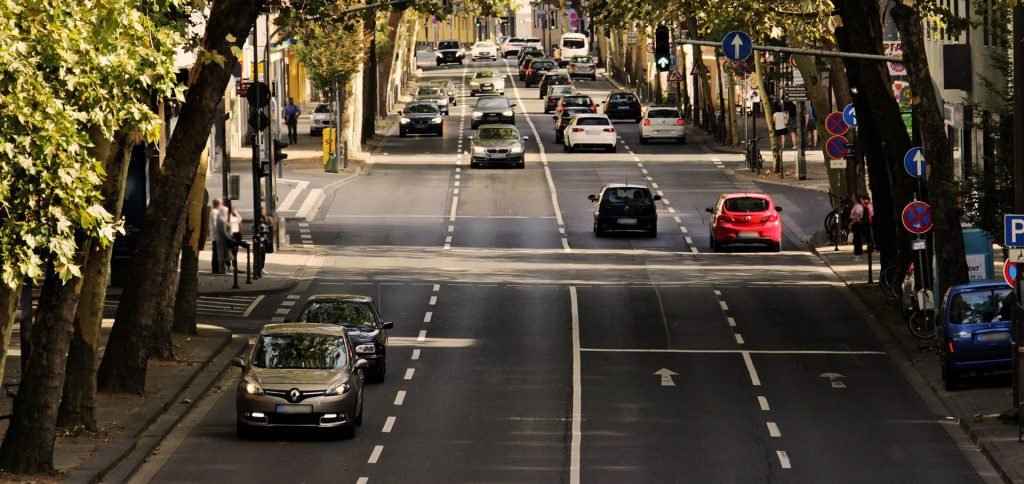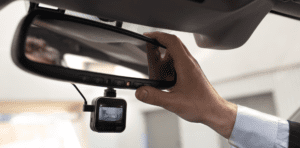Compare cheap car insurance
✔ Compare cheap car insurance quotes
✔ Over 110 insurance providers
✔ Get a quote in minutes
✔ Save up to £504*


- Which cars are in car insurance group 2?
- Why are cars in group 2 the cheapest?
- Are group 2 cars a good option for young drivers?
- Cars in group 2 include
- What insurance group would my electric/hybrid car be in?
- What insurance group would my classic car be in?
- What insurance group would my modified car be in?
- Compare car insurance
Car Insurance Group 2 – All you need to know.
Insurance companies categorise cars into groups based on the probability of a claim being made by the driver. The categorisation system consists of 50 groups, with vehicles in the lower groups being less costly to insure and those in the higher groups being more expensive to insure.
Which cars are in car insurance group 2?
Car insurance groups are a way for insurance companies to categorise vehicles based on their risk level. There are 50 groups in total, with group 1 being the cheapest to insure and group 50 being the most expensive. Cars that fall into group 2 are considered to be relatively low-risk and are typically cheaper to insure than those in higher groups.
Some examples of cars that fall into group 2 include the Ford Ka, Vauxhall Corsa, and Volkswagen Polo. These vehicles are typically smaller in size and have lower engine capacities, which can make them less powerful and less likely to be involved in accidents. Additionally, they tend to be equipped with basic safety features, such as airbags and anti-lock brakes, which can also help to lower the cost of insurance.
It’s worth noting that the specific model and trim level of a car can also affect its insurance group. For example, a Ford Ka with a higher-performance engine or additional luxury features may be placed in a higher group than a base model. Additionally, the age of the car can also be a factor, with newer cars being placed in lower groups than older models.
In conclusion, cars that fall into group 2 are considered to be relatively low-risk and are typically cheaper to insure than those in higher groups. Examples of cars that fall into group 2 include the Ford Ka, Vauxhall Corsa, and Volkswagen Polo. The specific model and trim level of a car can also affect its insurance group. Additionally, the age of the car can also be a factor, with newer cars being placed in lower groups than older models.
Why are cars in group 2 the cheapest?
Cars that fall into group 2 are considered to be relatively low-risk and are typically the cheapest to insure among all the groups. There are several reasons why cars in this group are considered to be the cheapest.
Firstly, cars that fall into group 2 are typically smaller in size and have lower engine capacities, which can make them less powerful and less likely to be involved in accidents. Additionally, they tend to be equipped with basic safety features, such as airbags and anti-lock brakes, which can also help to lower the cost of insurance.
Secondly, cars in group 2 are typically older models, which means they are less expensive to replace or repair in case of an accident. Additionally, these cars usually have lower market value so the cost of repair or replacement is not as high as cars in the higher groups.
Lastly, cars in group 2 are considered to be more affordable in terms of purchase price, which means that their owners are less likely to make claims for expensive repairs or replacements.
In conclusion, cars that fall into group 2 are considered to be the cheapest to insure because they are typically smaller in size and have lower engine capacities, which makes them less powerful and less likely to be involved in accidents. Additionally, they tend to be older models, which means they are less expensive to replace or repair in case of an accident and they are considered to be more affordable in terms of purchase price.
Are group 2 cars a good option for young drivers?
Group 2 cars are typically considered to be a good option for young drivers due to their relatively low insurance costs.
Firstly, cars in group 2 are smaller in size and have lower engine capacities, which can make them less powerful and less likely to be involved in accidents. This is especially important for young drivers who are considered to be at a higher risk of getting into accidents due to a lack of experience on the road.
Additionally, group 2 cars are typically older models, which means they are less expensive to replace or repair in case of an accident. This can help to keep the cost of insurance premiums low for young drivers, who are often considered to be a higher risk by insurance companies.
Furthermore, cars in group 2 are considered to be more affordable in terms of purchase price, which means that young drivers are less likely to make claims for expensive repairs or replacement. This can help to keep the cost of insurance premiums low for young drivers.
However, it’s worth noting that the cost of insurance for young drivers is influenced by many factors, including the driver’s age, driving experience, and claims history. Therefore, it is important for young drivers to shop around and compare different insurance options before making a decision.
In conclusion, group 2 cars are typically considered to be a good option for young drivers due to their relatively low insurance costs. They are smaller in size and have lower engine capacities, which makes them less powerful and less likely to be involved in accidents, they are older models, which means they are less expensive to replace or repair in case of an accident and they are considered to be more affordable in terms of purchase price.
Cars in group 2 include:
Here is a list of some of the cars that are typically classified in car insurance group 2:
- Ford Ka
- Vauxhall Corsa
- Peugeot 207
- Skoda Fabia
- Volkswagen Polo
- Toyota Yaris
- Honda Jazz
- Nissan Micra
- Fiat Punto
- Citroen C3
It’s worth noting that car insurance groups can vary between different insurance providers and can also depend on the specific trim level and engine size of a particular car. Therefore, it is always recommended to check with your insurance provider for the most accurate and up-to-date information.
What insurance group would my electric/hybrid car be in?
When it comes to insuring an electric or hybrid car, the insurance group it falls into can have a significant impact on the cost of your premium. Insurance groups are a way of categorising vehicles based on factors such as their value, performance, and safety features.
Electric cars, also known as EVs, are typically placed in a lower insurance group compared to their gasoline or diesel counterparts. This is because they are generally considered to be less powerful and less of a theft risk. Additionally, the battery and other electric components of an EV may be covered under the manufacturer’s warranty, which can also help to lower the cost of insurance.
Hybrid cars, which are powered by both an electric motor and a traditional gasoline engine, can fall into a wider range of insurance groups depending on the model. Some hybrids, such as the Toyota Prius, are considered to be low-performance vehicles and can be placed in a lower insurance group, while others, such as the BMW i8, may be considered to be high-performance vehicles and can be placed in a higher group.
It’s worth noting that some insurance companies may offer discounts for electric and hybrid cars, as they are considered to be more environmentally friendly and have lower emissions. Additionally, the location of charging stations and the availability of repair shops can also affect the cost of insuring an electric or hybrid car.
In conclusion, the insurance group of an electric or hybrid car can vary depending on the specific model and other factors. Electric cars are generally considered to be less powerful and less of a theft risk and therefore, tend to fall into lower insurance groups. While hybrid cars can fall into a wider range of insurance groups, depending on the model, some hybrids may be considered to be low-performance vehicles and can be placed in a lower insurance group, while others may be considered to be high-performance vehicles and placed in a higher group.
What insurance group would my classic car be in?
When it comes to insuring a classic car, the insurance group it falls into can have a significant impact on the cost of your premium. Classic cars are typically placed in a higher insurance group compared to modern vehicles. This is because they are considered to be more valuable, rare, and harder to find replacement parts. Additionally, classic cars may require more specialized and experienced mechanics to repair and maintain them.
It’s worth noting that some insurance companies may offer special policies for classic cars, which can provide cover for things like agreed value, mileage restrictions, and use for shows and events. Additionally, many classic car owners choose to insure their vehicles under a separate classic car policy which can provide specialised cover and protection.
In conclusion, classic cars are typically placed in a higher insurance group compared to modern vehicles, due to their value, rarity, and specialized maintenance requirements. Many insurance companies offer specialized policies for classic cars, which can provide cover for things like agreed value, mileage restrictions, and use for shows and events.
What insurance group would my modified car be in?
When it comes to insuring a modified car, the insurance group it falls into can have a significant impact on the cost of your premium. Modified cars are typically placed in higher insurance groups as they are considered to be riskier and more expensive to repair. The modifications such as engine tuning, suspension lowering, and body kits, can increase the car’s performance and value, but also make them more likely to be involved in accidents and more expensive to fix.
It’s worth noting that some insurance companies may not cover certain types of modifications, or may require additional documentation or inspections to ensure that the modifications are safe and meet legal requirements. In some cases, modified cars may also require specialized insurance policies that provide cover for specific modifications.
In conclusion, modified cars are typically placed in higher insurance groups as they are considered to be riskier and more expensive to repair. Some insurance companies may not cover certain types of modifications or may require additional documentation or inspections. In some cases, modified cars may also require specialized insurance policies that provide cover for specific modifications.
Compare car insurance
Comparoo is a comparison website that allows you to compare car insurance quotes from over 110 providers. By using Comparoo, you can find the cheapest car insurance policy that suits your needs. With just a few clicks, you can compare policies from different providers and find the best deal.
Comparoo allows you to compare policies based on different factors such as cover, deductibles, and discounts. This means that you can find a policy that fits your budget and your cover needs.
On average, Comparoo customers can save up to £504 by comparing car insurance quotes. This is a significant saving that can help you to lower your car insurance costs and keep more money in your pocket.
If you’re looking for cheap car insurance, Comparoo is a great resource to help you find the best deal. With over 110 providers to choose from, you’re sure to find a policy that fits your needs and budget.










